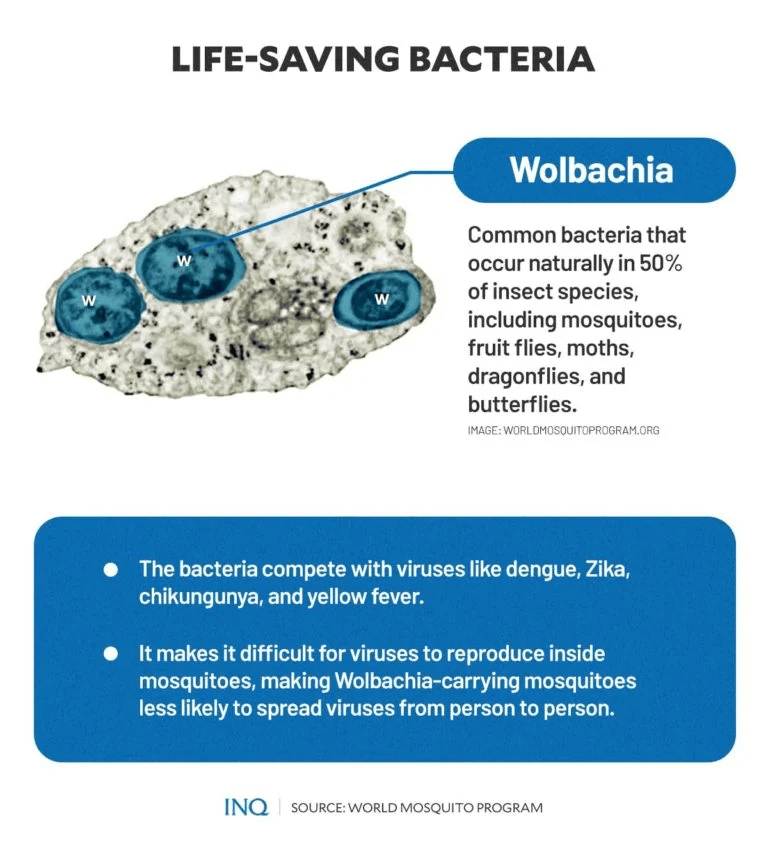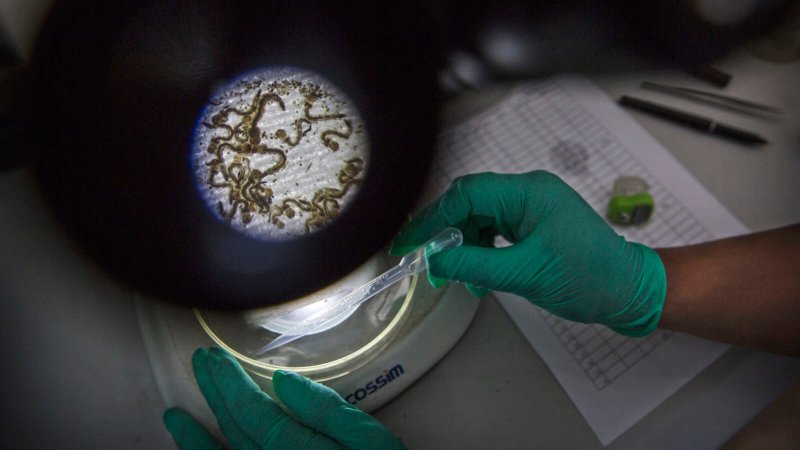In 2009, the [World Mosquito Program, or] WMP’s research team discovered that a bacteria called Wolbachia could prevent the transmission of dengue and other human disease-causing viruses carried by Aedes aegypti mosquitoes.
Studies showed that the bacteria make it difficult for viruses, such as dengue, Zika, chikungunya, and yellow fever, to reproduce inside the Aedes aegypti mosquitoes—making the mosquitoes much less likely to spread viruses when they bite people.
“This means that when Aedes aegypti mosquitoes carry natural Wolbachia bacteria, the transmission of viruses like dengue, Zika, chikungunya, and yellow fever is reduced,” the organization explained.
…
WMP also said that compared to other methods used to control dengue-carrying mosquitoes, the Wolbachia method is more sustainable and affordable.
On the other hand, results of the first open-air study of genetically modified mosquitoes by Oxitec were released recently. According to the company, the findings of the study were “favorable.”
…
Aside from these hopeful trial results, it is worth noting that both the Wolbachia-carrying mosquitoes and the genetically modified male mosquitoes are harmless or safe for human health.
































